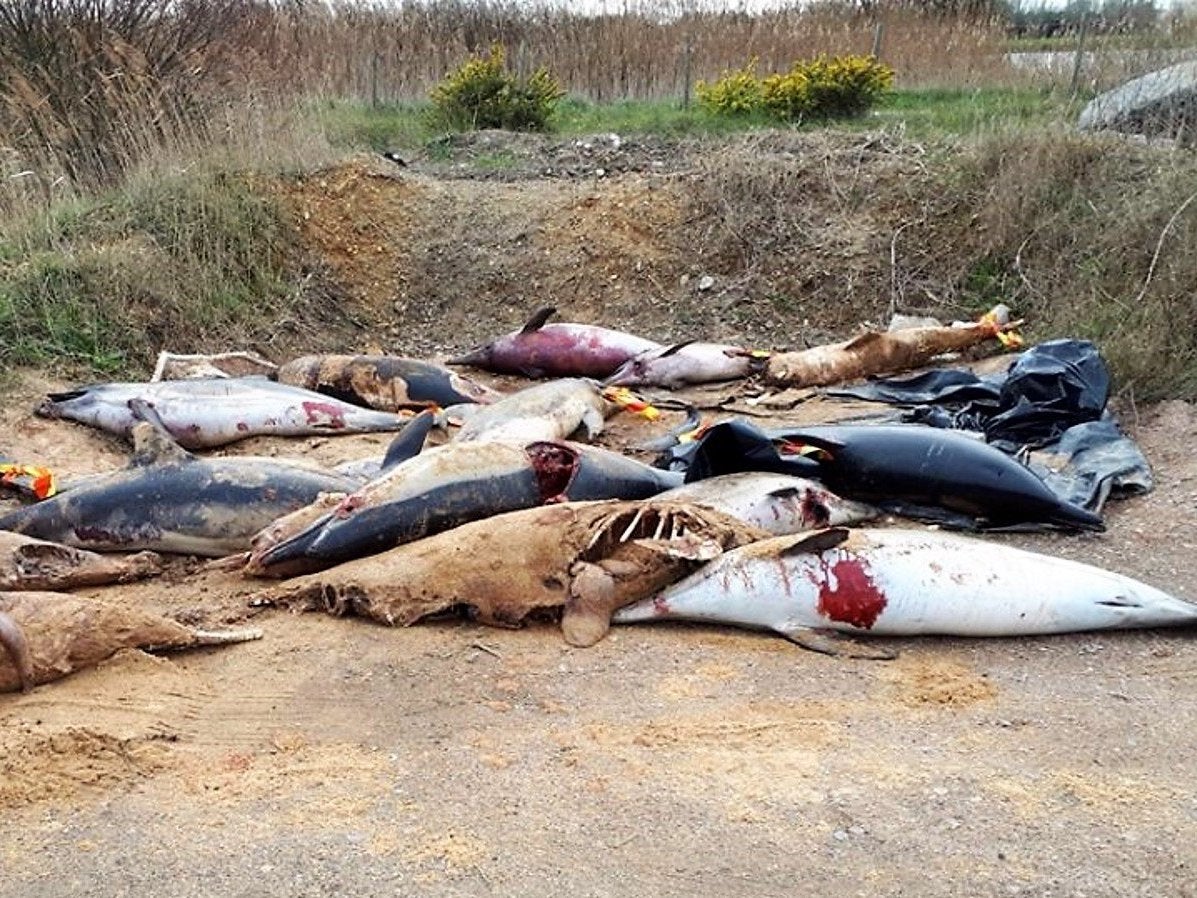Hundreds of mutilated dolphins caught by nets discovered piled up on beach in France
Trawlers believed to slaughter up to 10,000 of the mammals each year - more than those in Taiji and the Faroes combined
The mutilated corpses of hundreds of dolphins have been found piled up on a French beach.
They were some of the thousands accidentally killed by the fishing industry each year that wash up on the country’s coast, observers say.
The animals had suffered fractures, snapped tails, broken flippers and deep wounds from nets cutting into their flesh.
And experts fear the toll of “bycatch” victims is threatening the survival of French dolphin populations.
The grim find was made by volunteers from Sea Shepherd France in Les Sables d’Olonne, on France’s Atlantic coast near La Rochelle.
Local authorities gather up the corpses of dolphins washed up along stretches of beaches before once a week sending them to a rendering plant.
Each year trawlers fishing for sea bass kill up to 10,000 dolphins, according to Sea Shepherd – more than those slaughtered in the combined annual catches of the Faroe Islands and Taiji, Japan, which both cause mass public outrage.

The mammals are caught in fishing nets that capture everything in their path, suffering an “agonising” death by drowning. Any pulled up alive usually die from wounds inflicted by fishermen on the vessels, monitors say.
Trawlermen cut the dolphins open in an attempt to make them sink and disappear.
Catches happen every night, all year round along the French coast, peaking between January and March.
It is estimated only a fifth of the total killed are found on shore, with 990 dead dolphins washed up since December.
In 2016 scientists from the Pélagis Observatory in La Rochelle and university academics warned that death tolls from fishing risked driving populations to extinction.
“Dolphins are a sensitive species which are slow to reproduce their few offspring. By the time the decline in their population is visible, it’s usually too late,” said a spokesperson for activist group Sea Shepherd. “If we still want to see dolphins in France tomorrow, it’s urgent to take immediate measures to protect them.
“However, the French state is turning a deaf ear to all the scientists’ warnings, and the fishermen involved are taking advantage of the general public’s ignorance.”
The organisation wants a ban on fishing in sea bass spawning grounds and on the sale of juvenile fish.
French fishermen consider dolphins to be accidental catches even though they are protected by international conservation law, a spokesman for its French arm said.
The Loire fisheries committee says trawlers have pingers – sound repellents – but last month monitors said they observed two trawlers that had caught dolphins and did not have pingers.
The Independent has asked the French agriculture ministry to comment.

Join our commenting forum
Join thought-provoking conversations, follow other Independent readers and see their replies
Comments
Bookmark popover
Removed from bookmarks